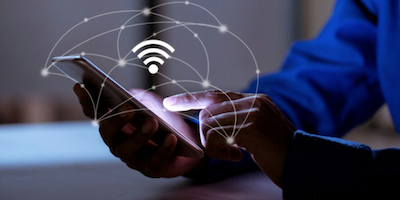 The future of healthcare is an exciting and rapidly-evolving field, with new technologies and innovations constantly emerging. One such technology that is playing an increasingly important role in the industry is WiFi. WiFi has become an essential tool for hospitals, clinics, and other healthcare facilities, providing a range of benefits and enabling new levels of care and efficiency.
The future of healthcare is an exciting and rapidly-evolving field, with new technologies and innovations constantly emerging. One such technology that is playing an increasingly important role in the industry is WiFi. WiFi has become an essential tool for hospitals, clinics, and other healthcare facilities, providing a range of benefits and enabling new levels of care and efficiency.
One of the key ways that WiFi is benefiting the healthcare industry is by enabling remote monitoring and care. With WiFi, patients can be monitored remotely, allowing them to receive care from the comfort of their own homes. This can be especially helpful for patients with chronic conditions, who may need to be monitored on a regular basis but do not require constant in-person care. Remote monitoring also allows healthcare providers to track patients' vital signs and other important health data in real-time, enabling them to respond quickly to any changes or potential issues. This can be a valuable tool for improving patient outcomes and reducing the risk of complications.
In addition to remote monitoring, WiFi is also enabling new forms of telemedicine. With telemedicine, patients can consult with their healthcare providers remotely, using video conferencing and other technologies. This can be a more convenient and cost-effective way for patients to receive care, and can also help to reduce the burden on healthcare facilities. In many cases, telemedicine can provide patients with access to care that they may not have been able to receive otherwise, particularly in rural or underserved areas.
Another important way that WiFi is benefiting the healthcare industry is by enabling better communication and collaboration among healthcare providers. With WiFi, healthcare providers can easily share information and communicate with each other, regardless of their location. This can help to improve the coordination of care and ensure that patients receive the best possible treatment. WiFi also allows healthcare providers to access important medical records and other data quickly and easily, enabling them to make informed decisions and provide high-quality care.
In addition to these benefits, WiFi is also helping to improve the overall efficiency of healthcare facilities. With WiFi, hospitals and clinics can streamline their operations and reduce the amount of time that patients spend waiting for care. This can help to improve patient satisfaction and reduce the overall cost of healthcare. In addition, WiFi can help to reduce the risk of errors and improve patient safety, by enabling healthcare providers to access the information they need quickly and accurately.
The growing use of WiFi in the healthcare industry is also opening up new possibilities for research and development. By enabling the rapid and efficient exchange of information, WiFi can help to advance medical knowledge and facilitate the development of new treatments and therapies. In the coming years, we can expect to see WiFi playing an even more significant role in the development of new healthcare technologies and innovations.
Overall, the growing role of WiFi in the healthcare industry is enabling new levels of care and efficiency. As this technology continues to evolve, it is likely to play an even more significant role in the future of healthcare. In the coming years, we can expect to see WiFi becoming an even more integral part of the healthcare industry, enabling new forms of care and improving the overall quality of healthcare.

